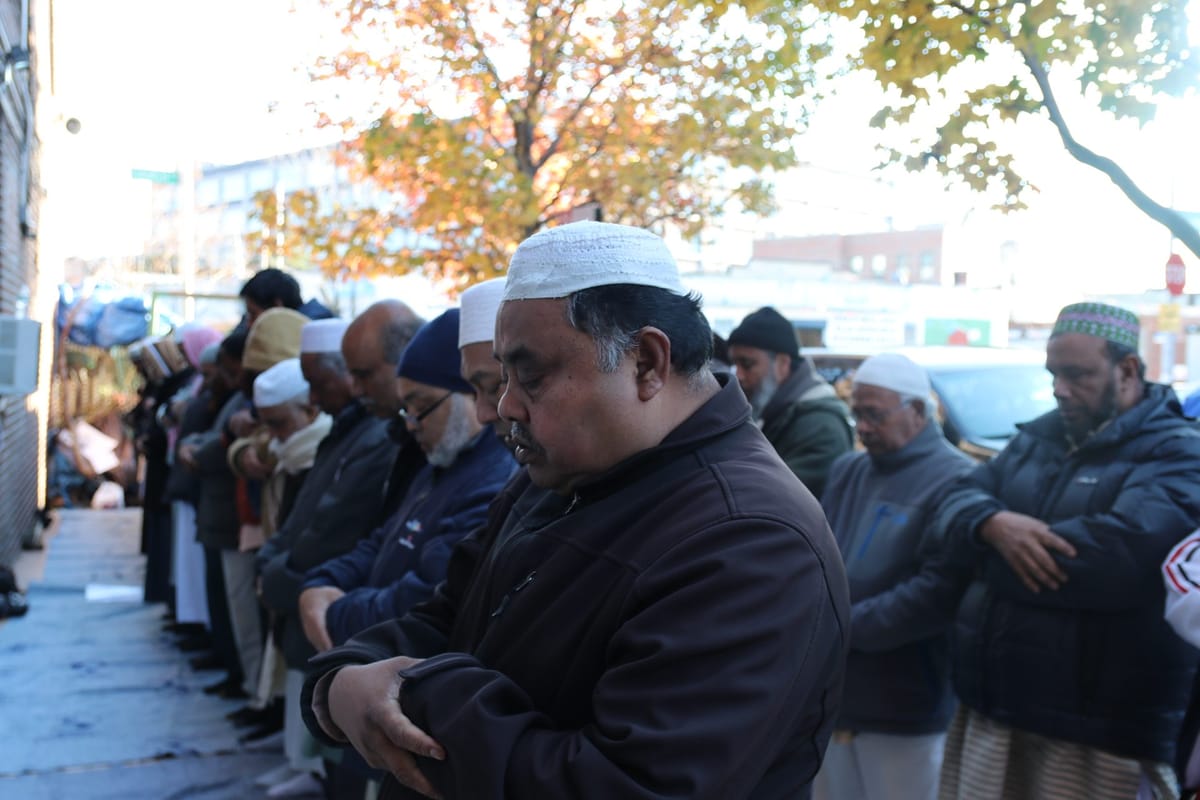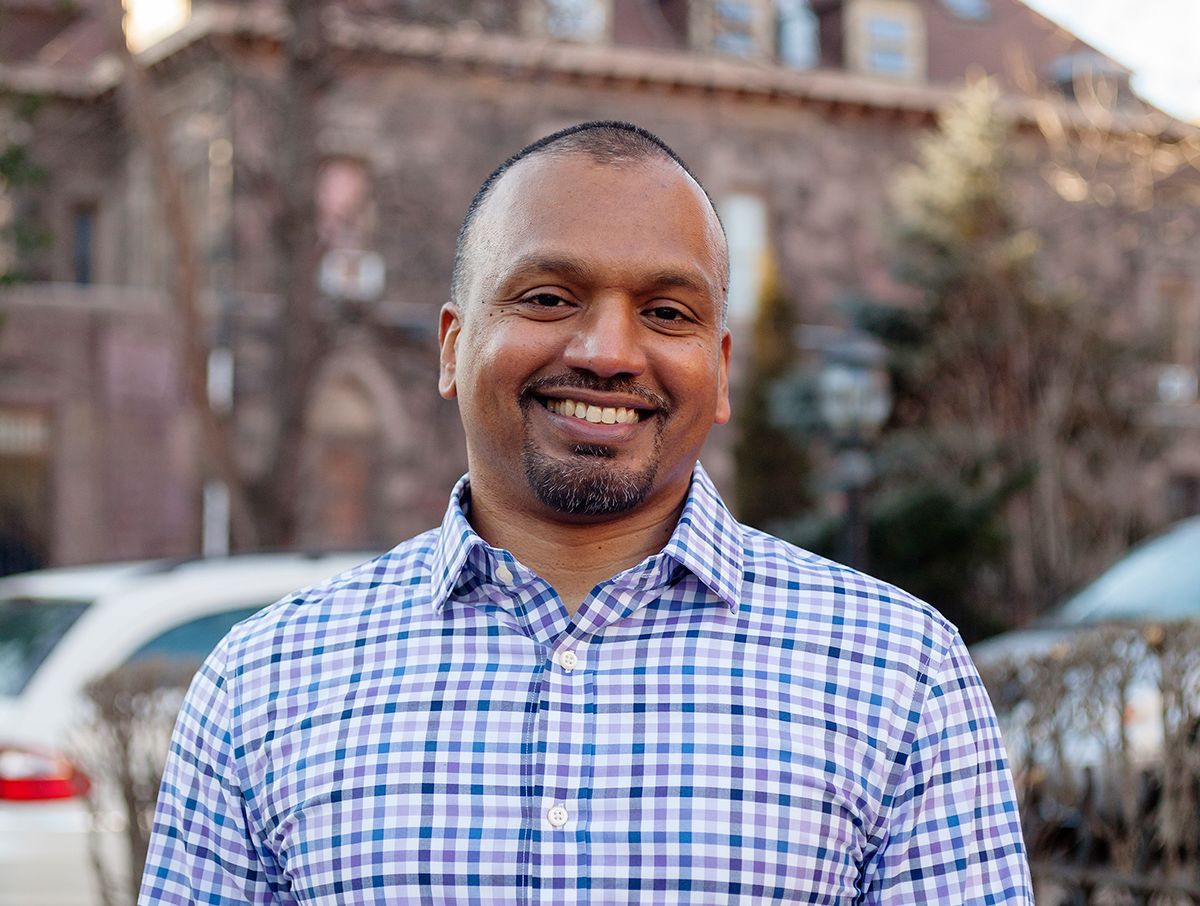Brooklyn Historical Society Presents “Muslims In Brooklyn” Next Week


BROOKLYN HEIGHTS – Next week, Brooklyn Historical Society (BHS) will present its “Muslims in Brooklyn” oral history project to the world.
“Muslims in Brooklyn” includes 50 oral histories from various Muslims across the borough.
“These 50 people are not representative of Muslims in Brooklyn. They are indicative of Muslims in Brooklyn,” Zaheer Ali, the program director, said of the participants who range in age from 24 to 74 and include musicians, students, religious leaders from Yemen, Egypt, Pakistan, Kashmir, and Lebanon among others.
Ali is one of the masterminds behind the project. When asked to tell me about himself, he laughed. It was the kind of laugh that could make you smile very hard.
“I’m not used to talking about me,” he said.
Ali grew up in Maryland. New York was his second home where he would come every chance he got during vacations. I asked him if he lives in Brooklyn.
“How dare you ask me that question,” he laughed. “Of course, I do!”
He’s been living in the borough for about 11 years. He said he thinks he’s “lived in Brooklyn long enough to claim it.”
Ali has been working at BHS since April of 2015. When he first started, he had three projects in mind that he wanted to one day work on. One was on gentrification, one was on Crown Heights, and the other was on Muslims in Brooklyn.

He thought about the anti-Muslim bias in the country and “the polarized discourse around Muslims appearing in the presidential campaign.” He thought now, more than ever, “was an opportunity for us to challenge the portrayal of Muslims being used to fuel anti-Muslim bias.”
Islam is one of the fastest growing religions in the world. Pew Research estimated that by 2040, Muslims will replace the Jewish population as the nation’s second-largest religious group after Christians. And by 2050, the U.S. Muslim population is projected to reach 8.1 million, or 2.1% of the nation’s total population.” The impact is felt close to home as well. According to Ali, about 9 percent of New Yorkers are Muslim.
So, in the fall of 2017, “Muslims in Brooklyn” was launched. The following year was spent researching and interviewing the 50 Brooklynites. And by October, they finally wrapped everything up.
Ali noted that plenty of resources are needed to conduct oral histories. There is interviewing, transcribing the interview, cataloging the interview, putting it in the collection, and synching the audio and text. The resources needed to complete this project allowed them to only interview 50 people.
“We’d love to do more if anyone wants to give us the support,” he said.
How were the 50 people chosen? First, Ali and his team researched Muslims in Brooklyn. They identified key stories and wanted to find people who could share those stories.
They identified five different themes: physical or spiritual migration (people going toward or away from Brooklyn, or people going toward or away from Islam), cultural institutions and practices, neighborhood change and development, civic engagement, and the arts.
Themes that emerged later on while interviewing included intergenerational continuity and breaks — which Ali described as continuing and carrying on a tradition or breaking it and going in a new direction. Other themes included new identities, gender, and what Brooklyn meant.
Then, Ali and his team started going to communities and speaking with people including religious leaders, elders, and young activists. They then built a roster of the stories they had, to keep track. They later went back into the communities to get everyone’s input and to ask if they were missing any stories.
Ali acknowledged that “Of course there are going to be people who say ‘but you didn’t include this or that’ and that is OK. This is not the total but a sampling.”
But even with 50 interviews, he’s fallen in love. “I can’t pick a favorite. It’s like picking your favorite child. You can’t do that,” he said.
Ali is proud of the fact that with the 50 interviews, “There’s a rich, multi-dimensional, diverse indication of Muslims who are in Brooklyn.”
He’s also proud that the stories would be archived. “These are not segregated Muslim voices. We’re putting them in an archive with a mix of other collections. We understand how important Muslims have been, and are, to the history of Brooklyn.”
Ali is a Muslim himself, which he said is an added plus.
“I’m personally invested in this as a Muslim in Brooklyn, and I’m personally invested in this as a historian and as a citizen who understands our country is stronger when our voices are heard.”
Ali is very excited for the big “Muslims in Brooklyn” launch listening party next Thursday, Dec. 6 at 6:30 pm at Brooklyn Historical Society.
“We want to not satisfy people’s curiosity but to inspire it,” Ali said. “We invite people to listen with an open mind and an open heart and encourage people to share their own stories with each other.”



